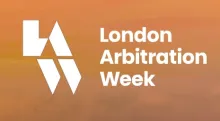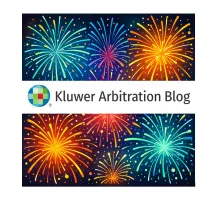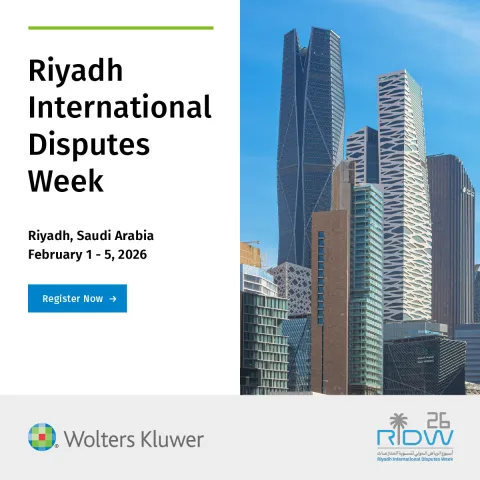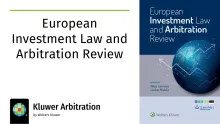The NextEra of Enforcement: US Courts and Intra-EU Investment Awards After Achmea and Komstroy
November 13, 2025
In August 2024, resolving a district split, the US Court of Appeals for the DC Circuit (“DC Circuit”) set a significant precedent in NextEra Energy Global Holdings BV v. Kingdom of Spain, ruling that US courts have jurisdiction to enforce investment arbitration awards against an EU Member State in favour of an investor from another EU Member State (intra-EU awards) under the Foreign Sovereign Immunities Act (“FSIA”), despite the Achmea and Komstroy judgments of the Court of Justice of the European Union (“CJEU”).
Since then, the US District Court for the District of Columbia (“DC District Court”) has had several opportunities to apply the DC Circuit’s ruling. This piece reviews the DC Circuit’s ruling in NextEra and the DC District Court’s subsequent decisions, tracing the recent developments in the US enforcement landscape for intra-EU awards.
NextEra Energy Global Holdings BV v. Kingdom of Spain
The DC Circuit’s judgment in NextEra Energy addressed a long-running dispute over the enforcement of arbitral awards obtained by Dutch and Luxembourgish energy investors against Spain, holding that the investors could enforce these awards in the US.
Background
In 2019 and 2020, the investors secured multi-million-euro awards under both the ICSID and UNCITRAL rules, pursuant to Article 26 of the Energy Charter Treaty (“ECT”), after Spain withdrew renewable energy subsidies in the wake of the 2008 financial crisis. Seeking enforcement in the US, the investors filed three separate actions under exceptions to the FSIA: 9REN Holding SARL v. Kingdom of Spain, NextEra Energy Global Holdings BV v. Kingdom of Spain, and Blasket Renewable Investments LLC v. Kingdom of Spain.
The FSIA establishes a general rule of sovereign immunity, subject to limited exceptions, including for arbitration (28 U.S.C. § 1605(a)(6)). To invoke this exception, a court must confirm three jurisdictional facts: (1) the existence of an arbitration agreement, (2) an arbitration award, and (3) a treaty that may govern enforcement.
Spain moved to dismiss all three actions, contending that no valid arbitration agreement existed. Relying on the CJEU’s decisions in Achmea, which held that EU Member States may not submit an intra-EU dispute to arbitration under an investment treaty between EU Member States, and Komstroy, which applied Achmea’s logic to the ECT, Spain argued that Article 26 of the ECT was invalid as applied to intra-EU disputes, thereby nullifying any agreement to arbitrate with EU investors.
Spain’s arguments divided the DC District Court. In 9REN and NextEra, Judge Chutkan sided with the investors, holding that the FSIA arbitration exception applied because Spain’s objection went to the scope of the arbitration agreement, a merits question, rather than to jurisdiction. In the Blasket case, however, Judge Leon ruled in favour of Spain, reasoning that under EU law (which both Spain and the investors were subject to, and which the ECT itself incorporated), no valid arbitration agreement existed, and thus Spain retained immunity.
Appeal to the DC Circuit
On appeal, the DC Circuit consolidated the cases to resolve the core question: Do US courts have jurisdiction to enforce intra-EU investment arbitration awards against an EU Member State?
The DC Circuit answered yes. It held that Spain’s standing offer to arbitrate in Article 26 of the ECT constituted an “agreement made by the foreign state […] for the benefit of a private party” within the meaning of the FSIA’s arbitration exception. It noted that an investment treaty’s arbitration provision, like Article 26 of the ECT, can operate as a “unilateral offer to arbitrate” by the sovereign to investors of other signatory countries, which may then accept the offer by filing a notice of arbitration, thereby creating a second arbitration agreement between the investors and the sovereign.
While Spain conceded that the ECT was made “for the benefit” of some investors, it argued that EU investors were excluded because, under the Komstroy opinion, the ECT does not permit intra-EU arbitration, effectively resulting in the non-existence of an arbitration agreement.
The DC Circuit disagreed, finding that Spain’s argument was a matter of the agreement’s scope, not its existence, as it was a question as to whether the ECT’s arbitration provision applied to the disputes. Under established DC Circuit precedent (Chevron and Stileks), questions of scope are treated as merits issues, not jurisdictional barriers, because, for jurisdictional purposes, the FSIA’s arbitration exception requires only that the arbitral tribunal that rendered the award “purported to make an award pursuant to the ECT, not that it in fact did so”. Accordingly, the court decided that US district courts do have jurisdiction to enforce intra-EU investment arbitration awards under the ECT against EU Member States.
This continued the DC Circuit’s pro-enforcement trend: only months earlier, in Micula v. Romania, the court held that a CJEU judgment specifically prohibiting enforcement of the award within the EU did not prevent US courts from recognising and enforcing it. The situation in Micula differed somewhat from NextEra, however, since the award compensated investors for measures Romania had taken before its EU accession.
The 2025 DC District Court Cases
Since NextEra, the DC District Court has had ample opportunity to put the DC Circuit’s decision into practice.
In Cube Infrastructure v. Spain (14 August 2025), Mercuria Energy v. Poland (II) (8 September 2025), and ACF v. Bulgaria (22 September 2025), concerning arbitrations brought under the ECT, the court applied NextEra to reject the respondent States’ jurisdictional objections and proceeded to decide the investors’ petitions for enforcement.
In ACF, Bulgaria tried to distinguish its position from Spain’s defences in NextEra, arguing that Achmea and Komstroy rendered the ECT arbitration agreement void ab initio, but the court was unpersuaded, noting that “at any rate, Bulgaria’s ab initio argument is nothing more than a latinised version of Spain’s contention that Article 26 cannot compel arbitration among EU nationals”.
In Cube and ACF, the court also held that forum non conveniens, a court’s discretionary power to decline jurisdiction where another court may more conveniently hear a case, is unavailable in proceedings to confirm foreign arbitral awards, given that only US courts can attach foreign commercial assets located in the US.
It further concluded that the foreign sovereign compulsion doctrine, which allows a defendant subject to separate and conflicting legal obligations under two sovereign States to raise a defence to conduct that occurs in one State and violates the laws of the other, does not apply to prevent the enforcement of the award because Spain itself is a signatory to the ICSID Convention and US courts are required under their statutory and treaty obligations (New York Convention; ICSID Convention) to recognise foreign arbitral awards without re-examining the awards’ compliance with EU law. On that basis, the court granted the investors’ motions for summary judgment.
There is, however, an important caveat. In Mercuria, the arbitration proceeded under the Arbitration Rules of the Stockholm Chamber of Commerce (“SCC”) with a Swedish seat, enabling Poland to seek to set aside the award before the Swedish Svea Court of Appeal. The Svea Court, sitting in an EU Member State, annulled the award on Achmea/Komstroy grounds.
When the investors then sought enforcement in the DC District Court, the court held that it still had jurisdiction under the FSIA’s arbitration exception (because an annulment presupposes the existence of an award, satisfying the arbitration-exception threshold), but ultimately refused enforcement under the Convention on the Recognition and Enforcement of Foreign Arbitral Awards (“New York Convention”).
Relying on the DC Circuit’s decision in TermoRio, the court explained that US courts ordinarily will not enforce an award lawfully set aside at the seat, absent a judgment that is “repugnant to fundamental notions of what is decent and just” in the US. Emphasising comity, the deference one nation allows within its territory to the interests of another nation – “[s]imply put, comity is at its zenith here because the issues are of utmost importance to the EU and of minor significance to the United States” – the court declined to second-guess the EU courts and granted Poland’s motion to dismiss.
The Future of Intra-EU Awards in the US and EU
Taken together, these decisions show that NextEra has markedly eased the jurisdictional path for enforcing intra-EU ECT awards in US courts, and US treaty obligations sharply limit any merits review. But Mercuria shows it is not a universal workaround: US courts are unlikely to enforce an award annulled on Achmea/Komstroy grounds.
This suggests that seat selection may be of paramount importance. Investors seeking to arbitrate disputes under the ECT may be nudged towards ICSID arbitration, where they can ensure that any annulment requests are handled by an ICSID committee, not the courts of a particular State. The SCC has accepted this reality and issued a communication on 16 October 2024 outlining its new policy of selecting seats outside the EU for intra-EU investment treaty disputes to ensure the enforceability of the awards.
Meanwhile, intra-EU arbitrations under the ECT should become less frequent in the future, as the EU and several EU States, like France, Spain and the Netherlands, have now formally withdrawn from the treaty. However, any reduction will likely be gradual: according to the sunset clause in Article 47(3) of the ECT, all the investments covered by the Treaty at the time the withdrawal takes effect will enjoy protection for 20 years from withdrawal, and, in any event, some EU Member States remain parties to the ECT.
Further developments are expected in pending US enforcement proceedings, such as CEF Energia v. Italy, particularly given the Svea Court’s annulment of the CEF award. These cases will test whether the DC District Court maintains its Mercuria approach.
It will also be worth watching whether NextEra (petition filed by Spain on 1 May 2025) is granted certiorari by the US Supreme Court, which could provide definitive guidance on the scope of the FSIA’s arbitration exception and set a final precedent for intra-EU award enforcement in the US.
Conclusion
NextEra has confirmed the availability of US courts for intra-EU award enforcement by limiting sovereign immunity defences under the FSIA. But Mercuria shows that enforcement is not guaranteed: comity and deference to EU annulments can still block recovery.
Investors and their counsel should therefore plan enforcement strategies with seat choice, the implications of treaty withdrawals, and the evolving US-EU legal dialogue firmly in mind.
You may also like











